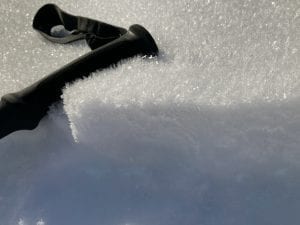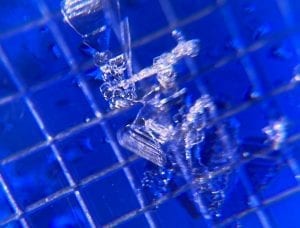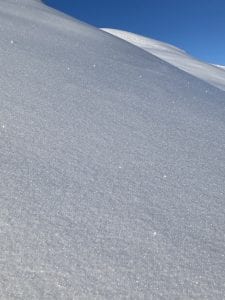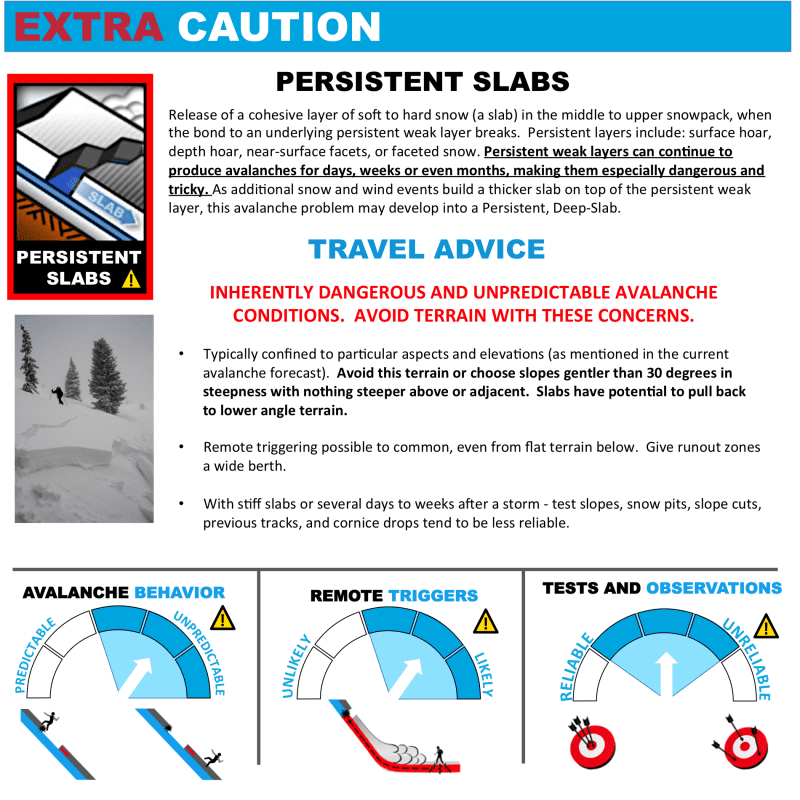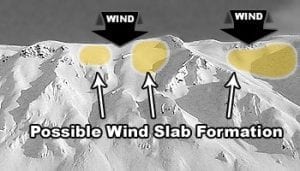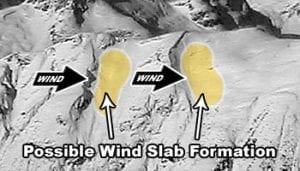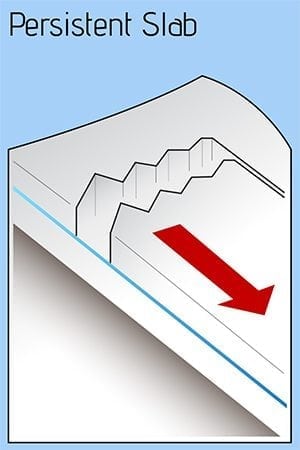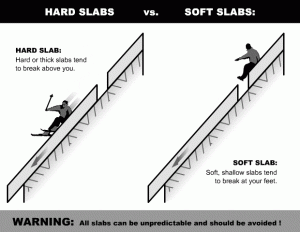Haines Avalanche Center
Above 2,500ftModerate
1,500 to 2,500ftModerate
Below 1,500ftModerate
Degrees of Avalanche Danger
Avalanche Problems
Problem 1
Confidence: High. Distribution: Isolated to Specific.
The snowpack above the MLK rain crust (about 45cm deep) has been punished by wind and cold. This leads to weakening over time and fresh wind slabs that can cause surprises.
Strong northerly outflow raked higher elevations this past week and deposited wind slabs on E-SE-S-SW-W aspects. Specific terrain features lower down on slopes and below treeline are areas that wind slab, or recent deposits, may have built over persistent weak layers. These sheltered, or protected areas may be tempting for riders looking for soft surface conditions, but where triggering a persistent slab is the most possible.
Keep an eye out for pregnant or wind loaded slopes, especially below terrain features (see photo in Avalanche Activity section below). Avoid slopes greater than 30 degrees, dig and look for layers to make specific hazard assessments. Remember that variability is high right now, and your snowpit is just a point observation. Pole probing and other quick tests will help you map out wind slabs and potential weak layers under the snow.
New Persistent Layers and Snowfall Timeline
- Feb. 3 – 10cm of very low density snowfall
- Jan. 30-31 – Surface Hoar event, north winds Jan. 30 – Feb. 2
- Jan 29 – 10cm of snowfall
- Jan 26-28 – Surface Hoar event, north winds Jan. 26-27
- Jan. 24 – 10cm of snowfall
- Jan. 20-23 – Surface Hoar event, north winds Jan. 24
Old Persistent Layers
- Jan. 18 – MLK Day Crust/Facets 45-65cm down in elevations up to ~3000′
- Jan. 10 – Melt-freeze crust 10 down 160-180cm in elevations up to ~3000′
- Jan 31 – New-Years Surface Hoar and Near-Surface-Facets interface ~100-150cm down in protected areas near tree-line, steep openings and alpine bowls.
(Surface hoar near-treeline in the Transitional Zone 1/31. Once buried by wind slab or new snow these feathery crystals become a dangerous persistent weak layer that will require extremely careful assessment and overall immediate avoidance in avalanche terrain. Photo: Jeff Moskowitz)
Examples of top loading and cross loading (click image to read more).
Likelihood:
- Almost Certain
- Very Likely
- Likely
- Possible
- Unlikely
Size:
- Historic
- Very Large
- Large
- Small
Trend
- Increasing
- Steady
- Decreasing
Avalanche Activity
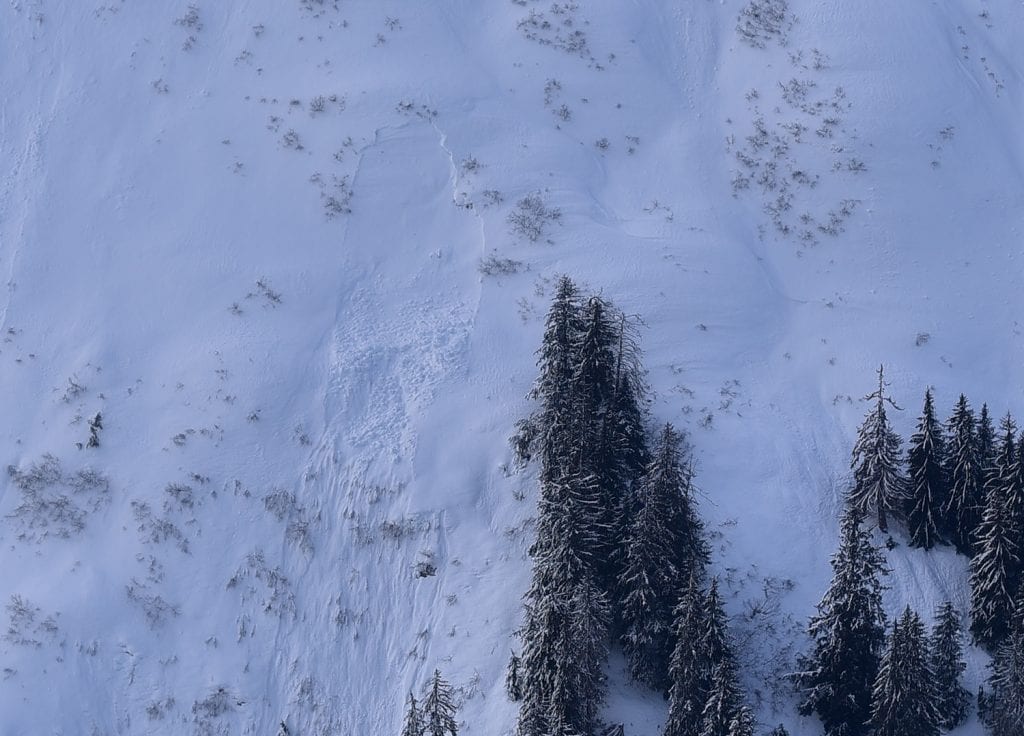
D2 Slab in cross-loaded terrain. Transitional Zone, NE aspect, 1500ft. Photo: Erik Stevens. 2/4/2021
There has been little observed activity in the last week, but this D2 pocket slab from Feb 4 is a good example of wind slabs lurking in cross-loaded pockets. These slabs are sitting on very weak surface hoar or facet layers and will be ripe for human triggering.
Bottom Line: The snowpack is steadily becoming more complex, with strong northerly outflow, intermittent snowfall, bouts of surface hoar and cold temperatures that promoted faceting. Searching out soft snow conditions may be tempting, but remember that protected or sheltered areas may harbor dangerous persistent weak layers, including surface hoar, that are possible for human triggering. A stepping back, status quo, or assessment mindset is essential to mitigate the current hazard. Avoid steep gullies, ravines and terrain traps at convexity and roll-overs, or anywhere snow could pile up quickly. Hard wind slabs may be difficult to trigger, but large, destructive, and unpredictable. If triggered, they are most likely to release above you.
Weather
Frigid temperatures and strong NW winds this past 2 weeks brought wind chills to -50F in mountain areas. A dusting of very low density snow was reported in Haines Feb. 3 at 57:1 snow to water ratio. An ice fog in the Lutak Zone was reported Feb. 4 which created a light ice crust on top. For this weekend, continued clear and chilly, though winds will be decreasing and temperatures will warm into the low 20’s during the day.
| Snow Depth [in] | Last 24-hr Snow/SWE [in] | Last 3-days Snow/SWE [in] | Today’s Freezing Level [ft] | Today’s Winds | Next 24-hr Snow/SWE | |
| Mount Ripinsky @ treeline | 125″+* | 0″ / 0.00 | 0″ / 0.00 | 0′ | mod,NW | 0″ / 0.00* |
| Flower Mountain @ treeline | 88″ | 0″ / 0.00 | 0″ / 0.00 | 0′ | mod, NW | 0″ / 0.00* |
| Chilkat Pass @ 3,100ft | 55″ | 0″ / 0.00 | 0″ / 0.00 | 0′ | mod, NW | 0″ / 0.00* |
( *star means meteorological estimate )
—The Mt. Ripinsky weather station is completely buried and no longer reporting.—
Additional Information
Practice like you play. Make sure all your rescue gear it is fully functional and your beacon has full batteries. Make sure 1) everyone in the group has a functioning beacon, shovel and probe 2) knows how to use them and 3) has trained in companion rescue in the last year. Keep your skills fresh. If you head into the hills, watch out for red flag avalanche conditions, natural avalanches, whoomphing or collapsing, and shooting cracks.
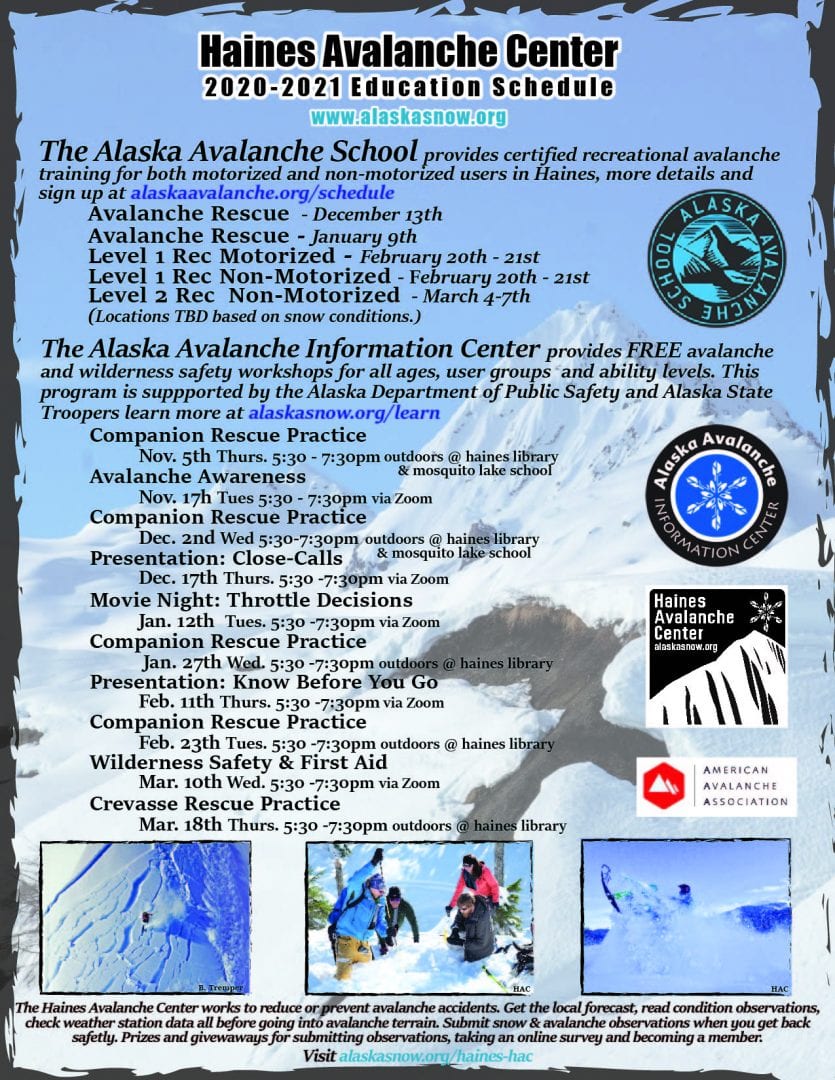
Education Video Links:
- AIARE
- How to Practice Avalanche Rescue Snowmobile Edition: https://youtu.be/2ML499MMDfM
- AK Sled Shed Motorized Learning:
- Intro: https://youtu.be/aoagKHfGkxs
- Personal Electronics in Avalanche Terrain: https://youtu.be/2Vz9S0OEyFk
- Snowmobile Macgyver Tool Kit: https://youtu.be/4WBNu_t6Bbk
- Head and Face Protection: https://youtu.be/jIzW89wOyZI
- Pre-season prep: https://youtu.be/zJmrb8cZlR4
- My Transceiver: https://youtu.be/yblaDWP7Jf8
- BCA Avalanche Safety for Snowmobilers
- How to Fix Common Snowmobile Problems in the Field: https://youtu.be/g9fiTxEvuFk
- Sleducation: Avalanche Safety for Snowmobilers: https://youtu.be/EWFOd_9DYb8
- Intro to Avalanche Transceivers for Snowmobilers: https://youtu.be/6ZLSBmsceog
- Avalanche Transceiver Trailhead Test for Snowmobilers: https://youtu.be/rWoXbadFBsY
- Avalanche Transceiver Searching Use Snowmobiles: https://youtu.be/w1ucyI6LMXM
- BCA Avalanche Rescue Series
- Beacon Search 101: https://youtu.be/nnHXLVA2FcE
- Avalanche Probing 101: https://youtu.be/-0_yDN5Drzw
- Avalanche Shoveling 101: https://youtu.be/dGQg9o3vAkM
- Organizing a Backcountry Rescue: https://youtu.be/gywtmukgt8s
- Post Avalanche Patient Care: https://youtu.be/9FyIeUy4wpQ
- Backcountry Evacuation: https://youtu.be/WPF-dciefL8
- Complex Multiple Burials Backup Techniques: https://youtu.be/pB6AfY2KyYo
- National Avalanche Center
- Avalanche Problems Explained: https://youtu.be/DkbnT_9-cHU
- Intro to North American Avalanche Danger Scale: https://youtu.be/r_-KpOu7tbA
Announcements
Click the + Full Forecast link below for each zone to read more. Submit observations. Win prizes. Each observation will be entered in a raffle drawing, this month’s prize a 1-hour massage gift certificate from Haines Body Work and Restorative Massage. Submit confidential reports and findings to [email protected].
